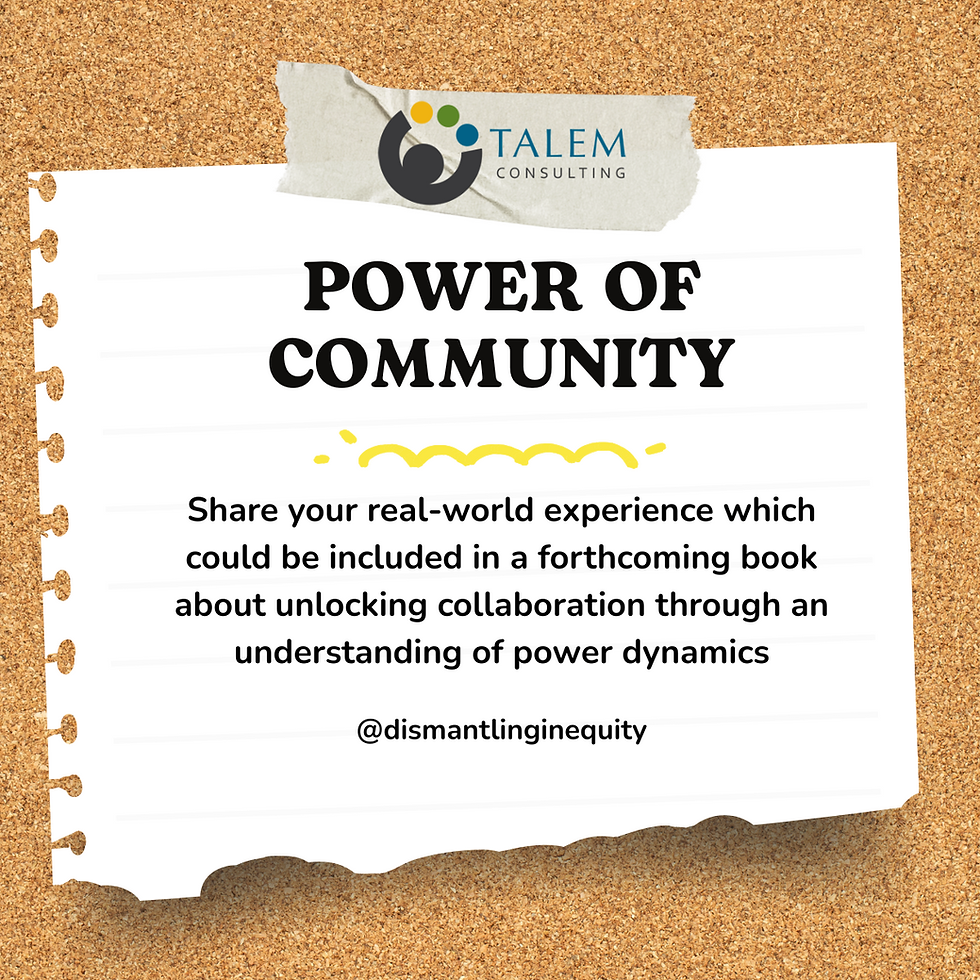When Systems Fail: Finding Power in Each Other
- Rachel Branaman

- Jul 25, 2025
- 3 min read
Updated: Aug 28, 2025
In an era where the fabric of democracy feels increasingly strained, and the specter of authoritarianism looms, many of us are grappling with how to effectively resist. We see systems of visible power—governments, institutions, and charismatic leaders—wielding immense control. And in the face of such overwhelming force, our traditional tools of resistance often feel insufficient.

Consider a fascist regime, or any system where the state has become the very source of the problem. In such scenarios, relying solely on established democratic avenues, like congressional meetings or the legislative efforts of even well-intentioned progressive leaders, often falls short. Their power to fundamentally alter the system is severely limited when the foundational institutions they operate within are under attack or have been co-opted. What often results are efforts that, while perhaps well-meaning, amount to posturing for clout—generating headlines but little tangible relief or systemic change.
This isn't to diminish the importance of advocacy, but to highlight its limitations when the very framework for change is compromised. When the visible levers of power are jammed, we must look elsewhere.
Unseen Forces: Hidden and Invisible Power
True, transformative impact, especially in oppressive environments, emerges from understanding and leveraging hidden and invisible power.
Hidden Power operates beneath the surface. It's about building underground networks, discreetly sharing vital information that bypasses state censorship, and quietly organizing to disrupt the regime's mechanisms. It’s the subtle, strategic work that undermines control without direct, often futile, confrontation. Invisible Power is even more profound. It focuses on shifting collective consciousness—the beliefs, perceptions, and shared sense of what's possible. This involves preserving cultural identity that the regime seeks to erase, subtly challenging dominant narratives in private conversations, and tirelessly fostering hope and solidarity within communities. It's the long game of ideological resistance that chips away at the regime's legitimacy from within.
The Case for Mutual Aid
In times of crisis and systemic oppression, our resources — our time, money, and energy — must be deployed with maximum impact. Institutional philanthropy won't keep the lights on, nor will it meaningfully dismantle a powerful, oppressive system. Relying solely on traditional philanthropic models fails to address the root causes of systemic vulnerability. They cannot, by their nature, confront an actively hostile state apparatus determined to control every aspect of life.
Instead, the most effective use of our resources lies in mutual aid and direct services. These are not just acts of charity; they are acts of solidarity and resistance. These efforts provide immediate, life-saving support—be it food, shelter, legal aid, or medical care—directly within communities, bypassing corrupted state channels. They build resilient local networks where individuals can rely on each other, fostering self-sufficiency and collective agency outside the state's reach. This is power decentralized, bottom-up, and inherently resistant.

Investing in Real Impact
When you assess how to contribute, look closely at the groups you follow. Prioritize and support those engaged in tangible, community-based work that prioritizes grassroots resilience and direct relief, not just public spectacles or lobbying efforts that yield limited results.
Your resources are best invested in those making a genuine, immediate difference — those building the hidden networks and fostering the invisible shifts in consciousness that can truly undermine oppressive visible power, one community, one act of solidarity at a time.

Do you have stories to share about how visible, hidden, or invisible power dynamics have shaped your community-building efforts, whether in times of direct oppression or subtle systemic challenges? I'm currently collecting diverse experiences for my upcoming book, "The Power of Community," which explores unlocking collaborative impact through understanding these dynamics. Your insights could help illuminate these critical concepts for readers and contribute to a deeper understanding of effective resistance. Share your stories here!



